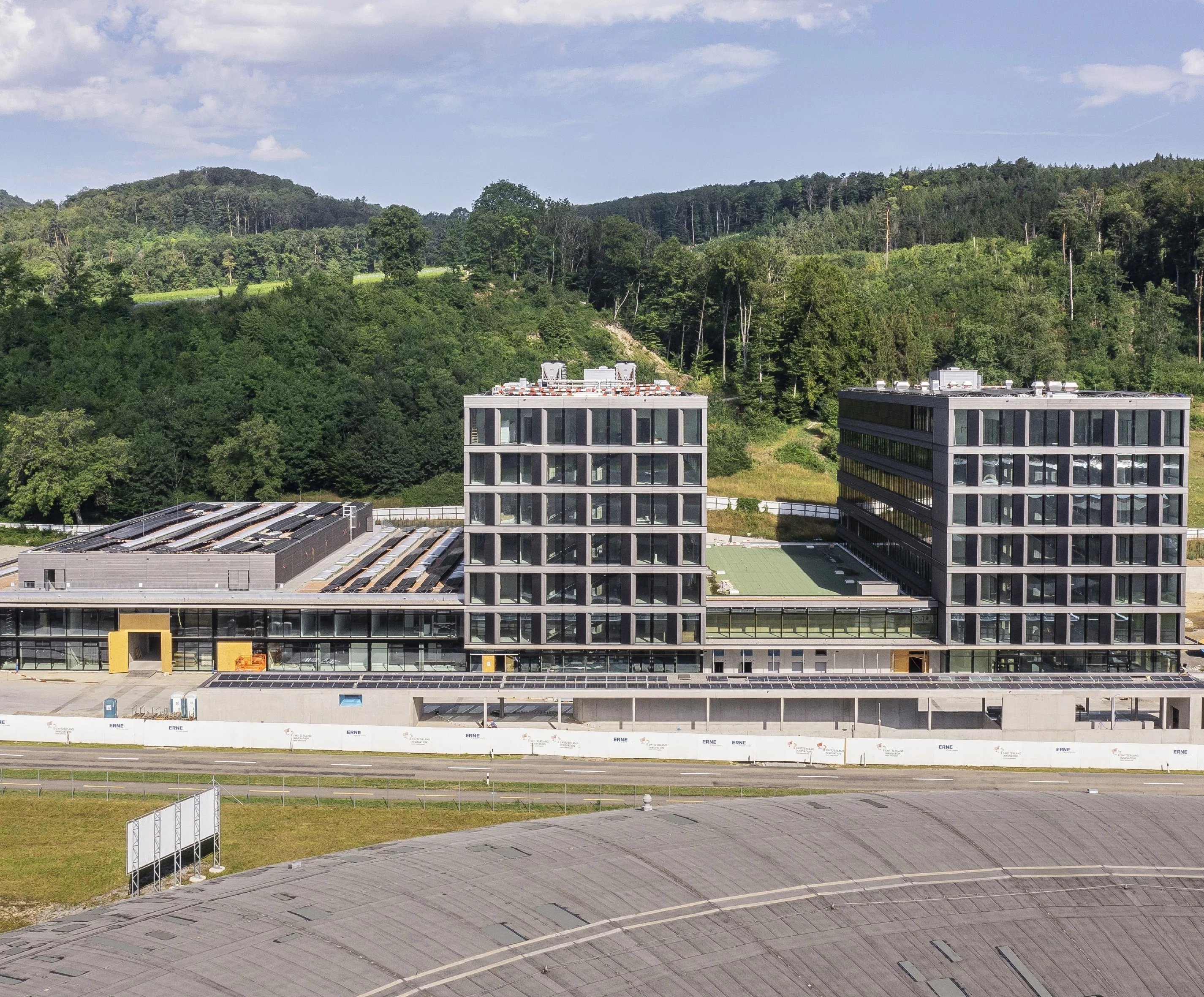The technology transfer centre Swiss PIC was founded at the beginning of January 2023. Swiss PIC will be located in the Park Innovaare, in the immediate vicinity of PSI, one of its founding partners alongside other industry and research stakeholders. The new centre aims to facilitate innovation in packaging and integration of optical systems and to make these accessible to industry.
In the canton of Aargau, a new technology transfer centre is being established: the “Swiss Photonics Integration Center”, Swiss PIC, will offer the transfer of know-how from academic partners, putting it at the service of the photonics industry. Photonics is all about the use of light to transmit information in so-called photonic integrated circuits (PICs). The light particles – the photons – act as the equivalent to the electrons in microelectronic systems. PICs are needed in future-oriented industries, including optical communications, sensor technologies, the development of quantum computers, autonomous driving, artificial intelligence and augmented or virtual reality.
Embedding integrated photonic systems in enclosed components with established interfaces to optical fibres is a complex task. This so-called “photonic packaging” is a prerequisite for industry to be able to use the technology commercially, and it is one of the starting points for Swiss PIC. “In addition to photonic packaging, the critical steps are currently the assembly, testing and approval of photonic systems,” says Kirsten Moselund, head of the Laboratory for Nano and Quantum Technologies at the Paul Scherrer Institute PSI and co-initiator of the new technology transfer centre. “Swiss PIC will develop expertise in all these areas and offer it to the photonics industry.”
Swiss PIC will primarily focus on micro-optical hybrid photonic systems, photonic integrated circuits and quantum photonics. The technology transfer centre will primarily offer its services to start-ups and SMEs. Those services will cover a broad range, from pure consulting to design all the way to setting up a customised, comprehensive photonic packaging infrastructure, allowing customers to start small series production.
Founding partners from industry and research
Swiss PIC will be the second technology transfer centre in the Park Innovaare, alongside ANAXAM, which specialises in materials analysis. Park Innovaare is one of six nationwide sites of the Swiss Innovation Park Switzerland Innovation.
Swiss PIC has been set up with financial support from the Federal Department of Economic Affairs, Education and Research as well as from the association of Advanced Manufacturing Technology Transfer Centres (AM-TTC). Funding is being provided on the one hand by the ETH Board, which has defined establishing the AM-TTC in Switzerland as one of its strategic planning measures for 2021–2024. In addition, Swiss PIC is receiving funding from the federal government in accordance with Article 15 of the Federal Act on the Promotion of Research and Innovation. On top of this, Swiss PIC will obtain in kind contributions from industry and research partners.
The founding partners of Swiss PIC include the non-profit association Swissphotonics, which was in charge of the project application, the Paul Scherrer Institute PSI and the Eastern Switzerland University of Applied Sciences OST, as well as the companies Ligentec and Polariton Technologies, which specialise in integrated optics.
A photonics cluster at the Park Innovaare
“Swiss PIC is ideally positioned to support Swiss industrial partners as well as start-ups and to strengthen the technology transfer of its academic partners,” says Moselund. The technology transfer centre is currently in the process of being set up and is looking for staff.
“Swiss PIC is yet another milestone in assembling the photonics cluster we are establishing at the Park Innovaare,” adds Benno Rechsteiner, CEO of Park Innovaare. Industry clusters promote the efficient exchange between science and industry, they produce rapid innovations for marketable products, thereby optimising the value chain of companies. “Establishing the technology transfer centre Swiss PIC here represents an attractive added value both for us and for the region, and will contribute to developing our entire business ecosystem.”
Contact
Further information
- Park Innovaare website
- Of fusion reactors, fuel cells and tin cans – Article about the technology transfer centre ANAXAM of 7 November 2022
About PSI
The Paul Scherrer Institute PSI develops, builds and operates large, complex research facilities and makes them available to the national and international research community. The institute's own key research priorities are in the fields of future technologies, energy and climate, health innovation and fundamentals of nature. PSI is committed to the training of future generations. Therefore about one quarter of our staff are post-docs, post-graduates or apprentices. Altogether PSI employs 2300 people, thus being the largest research institute in Switzerland. The annual budget amounts to approximately CHF 460 million. PSI is part of the ETH Domain, with the other members being the two Swiss Federal Institutes of Technology, ETH Zurich and EPFL Lausanne, as well as Eawag (Swiss Federal Institute of Aquatic Science and Technology), Empa (Swiss Federal Laboratories for Materials Science and Technology) and WSL (Swiss Federal Institute for Forest, Snow and Landscape Research). (Last updated in June 2024)

